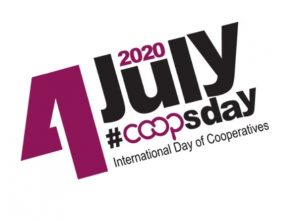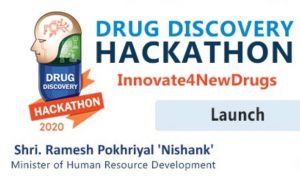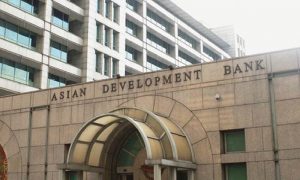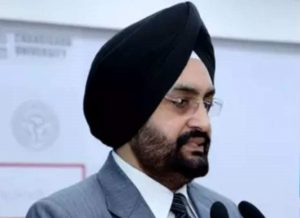VisionIAS
08:01
Monday, July 06, 2020
Insights IAS Secure Synopsis June 2020 PDF
VisionIAS
07:10
Insights IAS Secure Synopsis June 2020 PDF
Click Here to download Insights IAS Secure Synopsis June 2020 General Studies – 3 PDF
Click Here to download Insights IAS Secure Synopsis June 2020 General Studies – 4 PDF
Click Here to download Insights IAS Secure Synopsis June 2020 General Studies – 1 PDF
Click Here to download Insights IAS Secure Synopsis June 2020 General Studies – 2 PDFClick Here to download Insights IAS Secure Synopsis June 2020 General Studies – 3 PDF
Click Here to download Insights IAS Secure Synopsis June 2020 General Studies – 4 PDF
Forum IAS POST INDIAN SOCIETY AND SOCIAL ISSUES PDF
VisionIAS
07:02
Forum IAS POST INDIAN SOCIETY AND SOCIAL ISSUES PDF
Click Here to download Forum IAS CBP World History PDF
Sunday, July 05, 2020
Vision IAS Governance Notes 2020 PDF
VisionIAS
20:16
Vision IAS Governance Notes 2020 PDF
Click Here to download Forum IAS CBP World History PDF
Click Here to Like our Facebook page for latest updates and free ebooks
The HINDU Notes – 05th July 2020
VisionIAS
11:29

📰 Naga militant groups | Peace under process, tension in the air
Click Here to Like our Facebook page for latest updates and free ebooks
The Naga militancy, with its roots going back to First World War, is back in the spotlight after the State Governor slammed ‘gun-point extortions’
•Nagaland Governor R.N. Ravi did not name any group when he, in a letter to Chief Minister Neiphiu Rio on June 16, said the legitimacy of the constitutionally-established State government was being challenged on a daily basis by more than half a dozen “armed gangs that question the sovereignty and integrity of the nation”. The Governor, who took charge in July 2019, pointed out instances of “gunpoint extortions” for siphoning off a large chunk of government funds meant for development.
•The Governor’s comments have threatend the tenuous peace process with the militant groups responding sharply to him.
•The Working Committee of the Naga National Political Groups (NNPGs), a conglomerate of seven extremist groups, denied indulging in extortion but admitted to accepting “nominal contribution” that has been “mandatory” since the “inception of our struggle”. Some of the constituents of the umbrella group are breakaway factions of the NSCN (K), or the National Socialist Council of Nagaland, formed by the Myanmar-based Shangnyu Shangwang Khaplang.
•The NNPGs were not the first to counter Mr. Ravi. Their bigger rival NSCN (IM), named after founders Isak Chishi Swu, who died in June 2016, and Thuingaleng Muivah, reacted first by insisting it does not extort people but levies “genuine taxes” on them. “It is the inherent right of any sovereign people and nation to collect taxes from the people and commercial establishments... Taxes have been the source of sustenance that has brought the Naga political movement this far. This was legitimately acknowledged by the earlier interlocutors and Indian authorities and it was never an issue,” the NSCN (IM) said in its defence.
•The letter from Mr. Ravi, who was appointed as the Centre’s interlocutor for the Naga peace process in August 2014 for his hold on the affairs of the northeast, was unprecedented. Those acquainted with extremism in Nagaland and adjoining States where various factions of the NSCN have been active know much of what he said was familiar. The extremist groups have been collecting “taxes” or “donations” from people in their areas of operation before and after the ceasefire agreement with the NSCN (IM) in mid-1997.
Special responsibility
•Mr. Rio’s coalition government, of which the Bharatiya Janata Party is a constituent, objected to the Governor’s reminder of Article 371A (1)(b) of the Constitution that gives the Governor of Nagaland the special responsibility with respect to law and order in the State. In a statement on July 2, the State government pointed out that the procedure of taking the Governor’s approval for the transfer and posting of senior officers was ended through an Assembly resolution in December 2013. It also said any decision to put the clock back “in the guise of discharging special responsibilities” under the said Article “would be against the principles of democracy” and anti-people. But what stood out in the government’s rebuttal was the complaint about the Governor’s reference to “armed gangs”. Terming the organisations such, it said, “may not be congenial to the achievement of lasting peace, which is the desire of both the Central and the state governments”. By using the term vis-a-vis the peace process, both the Governor and the Rio government made it clear which group mattered the most — the NSCN (IM).
The Naga Club
•Mostly comprising the Nagas of Manipur, the NSCN (IM) is 32 years old. But it has its roots in the conscription of some 2,000 Nagas by the British as labourers and porters for salvage work and road-building in France during First World War in 1917. On a foreign land, the Nagas, from disparate and warring tribes, developed a bond and the survivors who returned in May-June 1918 formed the Naga Club, along with some educated locals in October that year. The club aroused a sense of Naga nationalism. In 1929, leaders of the club submitted a memorandum to the Simon Commission, stating that the Nagas should be left alone to “determine for ourselves as in ancient times”.
•The Naga Club was later overshadowed by the Naga Hills District Tribal Council, formed in 1945. A year later, it metamorphosed into a political organisation called the Naga National Council (NNC), which campaigned for sovereignty and secession of the Naga Hills, then a district of Assam, from India. Under the leadership of Angami Zapu Phizo, the Nagas declared independence on August 14, 1947. A referendum organised by the NNC in May 1951 showed “99%” people supported an “independent” Nagaland.
•The NNC’s movement intensified after it boycotted the 1952 general election. As New Delhi deployed the armed forces, the strength of the underground Nagas increased. In March 1956, the NNC formed a parallel government and hoisted the flag of the “republic”, while the radical members floated the underground Naga Federal Army. The intensity of the armed movement lessened with the signing of the 16-Point Agreement between the Centre and a group of the people’s representatives in 1960, leading to Nagaland’s statehood in December 1963.
•The movement, however, continued intermittently. The hopes of peace were raised when the Centre signed the Shillong Agreement with a moderate faction of the NNC in 1975. But a dissident group led by Muivah, Swu and Khaplang, who had been trained in China, rejected the pact outright. They went underground again, spending much of their time in Myanmar and formed the National Socialist Council of Nagaland in January 1980. Differences surfaced within the outfit over initiating a dialogue process with the Indian government. It split into the NSCN (IM) and the NSCN (K) in April 1988 and often engaged in fratricidal battles.
Feelers from Delhi
•In 1997, the NSCN (IM) received feelers from New Delhi for peace talks and a ceasefire agreement was signed. The NSCN (K) followed suit four years later but it unilaterally abrogated the ceasefire in 2015. At least three of its breakaway factions, however, formed the NNPGs to join the peace process two years later.
•In the 23 years since the signing of the truce pact, the NSCN (IM), dominated by the Tankhuls of Manipur, has held more than 100 rounds of peace talks with the Centre within and outside the country. One of its most contentious demands was the creation of a unified Naga homeland, called ‘Greater Nagalim’ by integrating the Naga-inhabited areas of Assam, Manipur and Arunachal with Nagaland.
•The other north-eastern States are opposed to the idea of the pan-Naga homeland, and are wary of the Framework Agreement the NSCN (IM) leaders signed at Prime Minister Narendra Modi’s residence in August 2015. The contents of the agreement have not been revealed.
•The NSCN (IM) said Governor Ravi’s letter reflected the intention of an interlocutor who wanted to complicate and prolong the much-delayed peace process. There are reports that key NSCN (IM) leader Phungthing Shimrang and his loyalists have gone underground again for a return to the pre-1997 days if the Nagas do not get the “honourable solution” they seek.
📰 ‘Mulling national logistics law’
THE HINDU NEWSPAPER IMPORTANT ARTICLES 05.07.2020
VisionIAS
09:15
GS PAPER 1
Nothing in this section today
Click Here to Like our Facebook page for latest updates and free ebooks
GS PAPER 2
GS PAPER 3
Saturday, July 04, 2020
UPSC (CSE) Prelims 2020: Check IAS Tina Dabi’s Study Plan & Revision Strategy for Last 3 Months Preparation
VisionIAS
18:36
UPSC has deferred the UPSC (IAS) Prelims 2020 exam to October 4. With an extended date, the current affairs syllabus for the exam will now include all the important events that occurred between April 2020-September 2020. Aspirants can utilize this time period to plan their final revision one more time before the exam and cover all the important topics. UPSC Civil Services is one of the most esteemed positions in the country. This makes the syllabus as well as the selection process of the exam vigor and extensive. Amid the COVID-19 outbreak and the anxious environment around, it is necessary that aspirants follow a study plan not only for a month but for each day to cover the revision of all syllabus before the Prelims exam with ease.
Daily Current Affairs, 04th July 2020
VisionIAS
18:26

1) International Day of Cooperatives celebrated on 04th July

•United Nations is celebrating the International Day of Cooperatives every year on the first Saturday of July since 1923. Co-operatives have been acknowledged as associations and enterprises through which citizens can effectively make their lives better by contributing to the economic, social, cultural as well as political advancement of their community and nation. Cooperatives employ 280 million people across the globe which is 10% of the world’s employed population.
2) Union HRD Minister launches “Drug Discovery Hackathon 2020”

•Drug Discovery Hackathon is a first of its kind national initiative which has been launched to support drug discovery process. Through this, government is also planning to attract international talent as the event is open to participation from across the globe from professionals, faculty, researchers and students from varied fields such as computer science, medical sciences, chemistry, Pharmacy, basic sciences and biotechnology. This Hackathon will support India in establishing the new model for expediting drug discovery process.
3) ADB becomes “Observer” for Network for Greening the Financial System

•With this, ADB has joined the ranks of the International Monetary Fund, the Organisation for Economic Co-operation and Development, World Bank and the International Finance Corporation as NGFS observers. Network for Greening the Financial System is a group of central banks and supervisors who are inclined to share best practices and contribute to the development of environment and climate risk management in the financial sector.
4) Care Ratings forecasts Indian Economy to contract by 6.4%

5) GoI extends tenure of Sukhbir Singh Sandhu as NHAI Chairman

•Sukhbir Singh Sandhu is a 1988 batch IAS officer of Uttarakhand cadre and took charge as the chairman of the National Highways Authority of India (NHAI) in October 2019.
Employment News 04 July to 10 July 2020 Download pdf
VisionIAS
15:03
Download Employment News pdf of this week 04 July to 10 July 2020 . Check latest job recruitment

Employment News pdf This Week - 04 July to 10 July 2020.
Hey Aspirants, its the latest for free of Employment Weekly Magazine. You can check latest job recruitment at various office/board. You can check upcoming vacancies and for this week/month. To download this employment magazine click on the link given below.
Click Here to download Employment News 04 July to 10 July 2020 – Download pdf
Click Here to Like our Facebook page for latest updates and free ebooks
The HINDU Notes – 04th July 2020
VisionIAS
14:57

📰 ‘India won’t import power equipment from China’
The strategic sector is vulnerable to cyberattacks, says R.K. Singh
•Union Power Minister R.K. Singh on Friday said India will not import power equipment from China, saying the sector, being strategic and essential, was vulnerable to cyberattacks.
•At a virtual conference with the States, the Minister said equipment imports from China and Pakistan would not be permitted.
•The State power distribution companies should not place orders with Chinese firms for equipment.
•Highlighting the need for self-reliance in the sector, Mr. Singh said the country’s power equipment import bill was about Rs. 71,000 crore during 2018-19, including purchases worth over Rs. 20,000 crore from China, even when the country had manufacturing facilities. As the sector was vulnerable to cyberattacks, Mr. Singh said, the imported equipment would be checked for any malware like Trojan.






